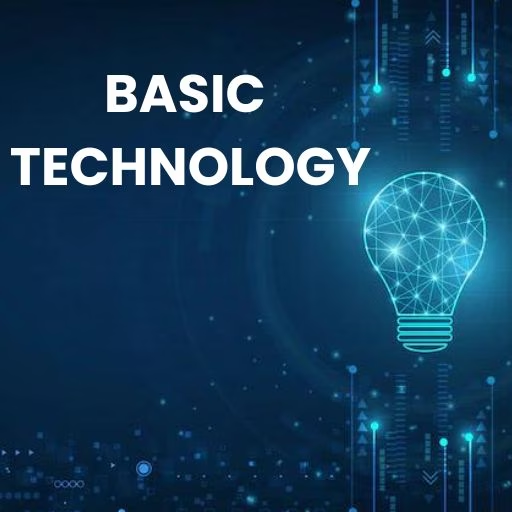Basic Technology for JSS 1: Welcome to the exciting world of technology! As students in Junior Secondary School (JSS 1), it’s essential to understand the basics of technology that shape our daily lives.
This article explores fundamental concepts, tools, and applications that will not only enhance your learning experience but also prepare you for the future.
From computers to the Internet, we’ll cover a variety of essential topics that every student should know.
Read: Why Are My JAMB Caps Not Opening? (See Solution)
What is Technology?
Technology refers to the application of scientific knowledge for practical purposes. It encompasses a wide range of tools, machines, systems, and processes that help us solve problems and improve our lives.
In today’s digital age, technology plays a crucial role in education, communication, and entertainment.
Types of Technology
1. Information Technology (IT)
Information technology involves the use of computers and software to manage information. This includes:
- Computers: Understanding the basic components of a computer, including hardware (physical parts) and software (programs that run on the hardware).
- Operating Systems: Learning about popular operating systems like Windows, macOS, and Linux, which manage computer resources.
- Internet: Exploring how the Internet works, including browsers, search engines, and online safety.
2. Communication Technology
Communication technology refers to the tools and platforms that facilitate communication. Key aspects include:
- Email: Understanding how to create, send, and receive emails.
- Social Media: Familiarizing yourself with platforms like Facebook, Twitter, and Instagram, and their impact on communication.
- Video Conferencing Tools: Learning about applications like Zoom and Skype, which enable virtual meetings and classrooms.
3. Educational Technology
Educational technology enhances learning experiences through various tools. This includes:
- E-Learning Platforms: Exploring platforms like Google Classroom and Moodle, which provide online learning resources.
- Multimedia Tools: Understanding how to use videos, presentations, and interactive content to make learning engaging.
- Online Resources: Utilizing websites and apps for research, including Wikipedia, educational YouTube channels, and online libraries.
Importance of Technology in Education
1. Enhances Learning
Technology provides students with interactive and engaging learning experiences. Multimedia presentations, educational games, and e-books can make complex subjects easier to understand.
2. Increases Accessibility
With technology, educational resources are available at our fingertips. Students can access information anytime and anywhere, breaking geographical barriers and facilitating distance learning.
3. Develops Digital Skills
In a technology-driven world, developing digital skills is crucial. Familiarity with software applications, online research, and digital communication prepares students for future academic and career opportunities.
Basic Computer Skills for JSS 1 Students
1. Keyboard and Mouse Basics
Learning how to use a keyboard and mouse is the first step in becoming computer literate. Practice typing skills, using shortcuts, and navigating through different applications.
2. File Management
Understanding how to create, save, and organize files is essential. Learn about file types (documents, images, videos) and how to use folders to keep your work organized.
3. Internet Navigation
Being able to navigate the Internet effectively is vital. Learn how to use search engines, evaluate the credibility of sources, and practice safe browsing habits.
Online Safety and Digital Citizenship
1. Protecting Personal Information
Students should learn the importance of protecting personal information online. This includes using strong passwords, avoiding sharing personal details on social media, and recognising phishing scams.
2. Cyberbullying Awareness
Understanding the impact of cyberbullying is crucial. Students should know how to recognise, report, and prevent cyberbullying, fostering a safe online environment.
3. Responsible Digital Citizenship
Being a responsible digital citizen means using technology ethically and respectfully. This includes respecting the rights of others, understanding copyright laws, and practicing good online etiquette.
Future Trends in Technology
As technology continues to evolve, it’s essential to stay updated on future trends. Some exciting areas to explore include:
1. Artificial Intelligence (AI)
AI is transforming various industries, from healthcare to finance. Learning about AI and its applications can spark interest in future careers.
2. Virtual Reality (VR) and Augmented Reality (AR)
VR and AR are creating immersive experiences in gaming, education, and training. Understanding these technologies can enhance learning and engagement.
3. Robotics
Robotics is an exciting field that combines engineering and technology. Exploring robotics can inspire creativity and innovation among students.
What is the technology for JSS 1?
In JSS 1, technology education typically focuses on introducing students to basic concepts and applications of technology. This includes understanding types of technology, tools, and their applications in daily life, as well as foundational skills in information technology, communication technology, and educational technology.
What is the subject of basic technology?
Basic Technology is a subject designed to introduce students to the principles and practices of technology. It encompasses the study of various technological systems, processes, materials, and tools. The subject aims to develop practical skills and an understanding of how technology impacts society.
What are the topics in basic science for JSS 1?
Basic Science for JSS 1 often includes the following topics:
- Introduction to science and its branches
- Scientific methods and processes
- Matter and its properties
- Energy and its forms
- Ecosystems and environmental science
- Human body systems
- Introduction to physics, chemistry, and biology concepts
Who should study technology in JSS 1?
All students in JSS 1 are encouraged to study technology as it equips them with essential skills for the modern world. It is particularly beneficial for those interested in pursuing careers in science, engineering, information technology, and other fields that require technological proficiency.
What is JSS 3 certificate called in Nigeria?
The certificate awarded at the end of Junior Secondary School (JSS 3) in Nigeria is called the Junior Secondary School Certificate (JSSC). This certificate is essential for students as they transition to senior secondary education.
Conclusion
In conclusion, understanding basic technology is essential for JSS 1 students. It not only enhances learning but also prepares students for the future. By mastering fundamental concepts, tools, and online safety practices, students can navigate the digital world confidently and responsibly. Embrace technology as a powerful ally in your educational journey!





![Full List of Art Courses to Study in Nigerian Universities 2025/2026 [UPDATED]](https://higheducationnow.com/wp-content/uploads/2025/02/Full-List-of-Art-Courses.jpeg)
